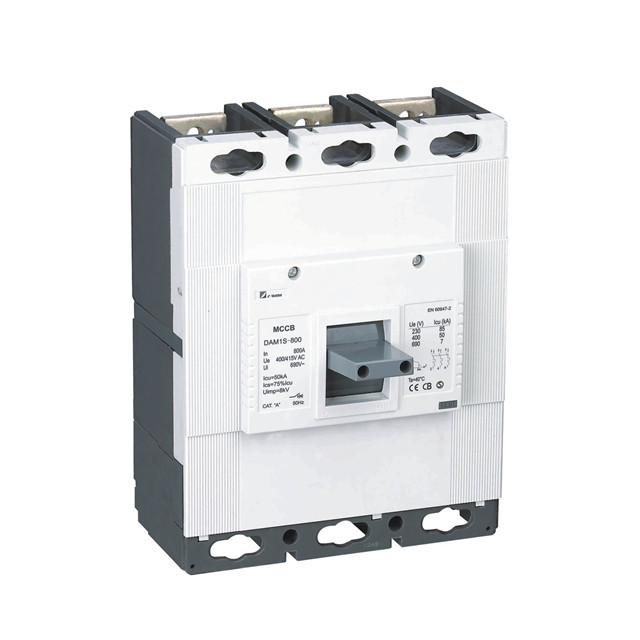A moulded case circuit breaker (MCCB) is an essential electrical protection device used to safeguard electrical circuits from excessive current and short circuits. These devices are widely employed in various applications such as distribution panels, switchboards, and motor control centers, ensuring the safety and smooth functioning of electrical systems.
The primary function of an MCCB is to interrupt the current flow when it exceeds a specified value, thus preventing damage to equipment and potential electric hazards. It achieves this by utilizing a trip mechanism, contacts, and a thermal or magnetic trip unit.
The MCCB is enclosed in a moulded case made of insulating material, typically plastic. This casing provides protection against external factors such as dust, moisture, and accidental contact with live parts. Additionally, it offers thermal insulation, preventing heat transfer to the surroundings.
One of the critical components of an MCCB is the trip mechanism. This mechanism is designed to sense the current flowing through the circuit. When the current surpasses the predetermined threshold, the trip mechanism promptly activates, causing the contacts to open. This action effectively interrupts the circuit and prevents further current flow.
The contacts within the MCCB play a crucial role in the operation of the device. They are responsible for carrying the current and ensuring a secure connection. The contacts are specifically designed to handle significant loads and frequent operations, ensuring the MCCB’s durability and reliability.
The thermal or magnetic trip unit within the MCCB is responsible for providing overcurrent protection. Thermal trip units monitor the heat generated due to excessive current. When the heat exceeds a specific limit, the trip unit triggers the trip mechanism, opening the contacts. On the other hand, magnetic trip units detect sudden surges in current, such as short circuits, and rapidly initiate the trip mechanism to avoid electrical accidents.
Overall, the MCCB plays a vital role in electrical system protection. In addition to interrupting excessive currents and preventing short circuits, it also enables easy isolation and restoration of circuits during maintenance or emergency situations. MCCBs are available in various sizes and current ratings to cater to different electrical applications, ensuring optimal protection for different types of circuits.
As technology continues to advance, MCCBs are being equipped with advanced features such as intelligent trip units and digital displays. These advancements provide enhanced monitoring capabilities, allowing users to analyze electrical parameters, identify faults, and take appropriate corrective actions.
In conclusion, the moulded case circuit breaker (MCCB) is a critical electrical protection device that ensures the safe and reliable operation of electrical circuits. With its trip mechanism, contacts, and thermal or magnetic trip units, it effectively safeguards against excessive currents and short circuits. The MCCB’s enclosure made of insulating material and its ability to handle significant loads make it an indispensable component in distribution panels, switchboards, and motor control centers, contributing to the overall safety and efficiency of electrical systems.
Post time: Jul-03-2023


